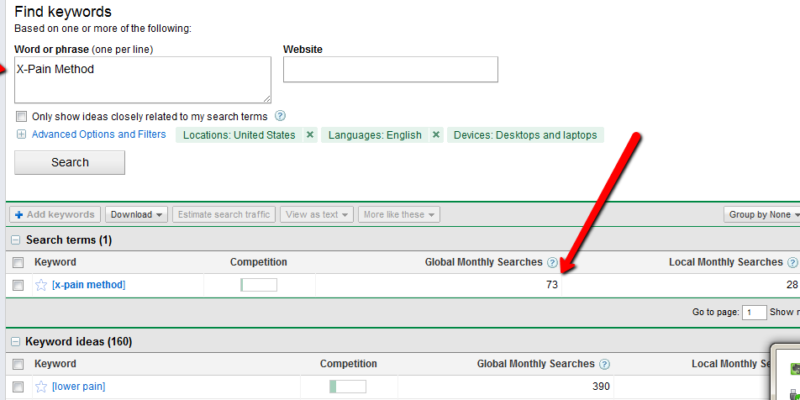- RT @ramseyshow: RT @E_C_S_T_E_R_I_: "Stupid has a gravitational pull." -D Ramsey as heard n NPR. I know many who have not escaped its orbit. #
- @BudgetsAreSexy KISS is playing the MINUTE state fair in August. in reply to BudgetsAreSexy #
- 3 year old is "reading" to her sister: Goldilocks, complete with the voices I use. #
- RT @marcandangel: 40 Useful Sites To Learn New Skills http://bit.ly/b1tseW #
- Babies bounce! https://liverealnow.net/hKmc #
- While trying to pay for dinner recently, I was asked if other businesses accepted my $2 bills. #
- Lol RT @zappos: Art. on front page of USA Today is titled "Twitter Power". I diligently read the first 140 characters. http://bit.ly/9csCIG #
- Sweet! I am the number 1 hit on Ask.com for "I hate birthday parties" #
- RT @FinEngr: Money Hackers Carnival #117 Wedding & Marriage Edition http://bit.ly/cTO4FU #
- Nobody, but nobody walks sexy wearing flipflops. #
- @MonroeOnABudget Sandals are ok. Flipflops ruin a good sway. 🙂 in reply to MonroeOnABudget #
- RT @untemplater: RT @zappos: "Do one thing every day that scares you." -Eleanor Roosevelt #
Getting Out of Bed

- Image by Wha’ppen via Flickr
Why do you get out of bed in the morning? Is it so you can exercise the privilege of spending 8 hours in a cubicle?
I didn’t think so.
In Okinawa, it’s call the ikigai. In Costa Rica, it’s the plan de vida. It’s your sense of purpose–the reason you get out of bed in the morning. In these cultures, having a strong ikigai can be directly correlated to a statistically extreme lifespan*. All around the world, the plan de vida is the single factor most likely to cause someone to feel they have lived a fulfilled life.
Do you know your ikigai?
For some people, their plan de vida is to successfully raise their children, then their grandchildren. For others, it is charity. Some folks are serial entrepreneurs, always looking for the next deal, the next business. For still others, it is a collection or an urge to travel. There are even some whose sole reason for getting out of bed(other than potty breaks) is work.
The last category is most common with teachers, soldiers, and police. The problem with wrapping so much of your identity up in your profession is retirement. What do you do when your ikigai–your reason to wake up–goes away? In Okinawa, teachers and police tend to have very short retirements because they lose their reason to for living.
What is your plan de vida, your passion? What drives you to keep going? Do you live to write, or to raise your children? Do you <shudder> live solely for someone else’s happiness? When you find it, it will resonate as “this is you”. Finding it is a deep soul-searching, not a light-hearted explanation or a new fad.
Your reasons can, and should, change over time. You can’t live for raising your children years after they have grown up and moved away. Finding this one factor in your life can be the thing that leaves you on your deathbed looking back with a smile instead of regret.
What is your plan de vida?
* From The Blue Zones: Lessons for Living Longer From the People Who’ve Lived the Longest
How Much Should You Tip?
- Image by cemre via Flickr
This post from CNN Money has been making the rounds. I’m getting into the game today.
With the holiday season upon us, tipping the people you work with is a tradition in some cases and actually expected in others. Here’s what CNN came up with and my take:
- Housekeeper. We don’t have one. I’d think $75-100 would make a nice tip/Christmas bonus. I seem to be more generous than average with my imaginary maid. Maybe that’s because of the outfits she wears.
- Gardener. Once again, we don’t have one. Even if we did, I live in Minnesota and have close to a foot of snow over the patch of weeds I call my garden. If I did have a gardener, I wouldn’t have seen him for a few months by now, anyway. $0!
- Mail carrier. I’ve only met my mail man a dozen times and I’ve never considered giving him a Christmas present. Do people really do that?
- Barber. I don’t have one any more. My wife has started doing my hair for me. When I did, I tipped about 25%, but again, I wouldn’t think about a Christmas present. I only saw him quarterly. I don’t think my wife has a regular stylist either. She’s just got a shop she goes to and gets whoever is available. Is there holiday tipping protocol for that?
- Garbage collector. No way. Really? I don’t know that I’ve seen the same guy twice. Am I supposed to give a present to the anonymous, interchangeable union guy that drives past my house every Friday?
- Newspaper carrier. One night, twelve years ago, while my wife was still working graveyard shifts, she had a hard time sleeping on her nights off. That’s natural for 3rd shift workers. At about 4AM, she was watching TV and saw someone run past the window. Scared, she came to wake me up. I handed her the phone to call the police, while I grabbed the only thing I had for self-defense and went to investigate. I ran out on the front step–in my boxers, carrying a sword–and saw someone lurking in the neighbor’s yard across the street. I yelled, “Y0u don’t belong here!” only to hear “I’m delivering the paper!” That’s when I start tipping the newspaper carrier. I stopped when we canceled our subscription a few years later. Who needs a dead tree in the morning, when there are a million news sites on the internet?
If the majority of people are giving Christmas bonuses to that many people, and are as generous as the article suggests, then I fall far to the loutish end of the bell curve. I am planning to give my virtual assistant 1/12 of the pay he’s earned this year, so that should make up for some of it, but that is an ongoing business relationship.
How do you compare when it comes to holiday tipping?
Sunday Roundup: Balancing Fun and Frugality
Friday was another Yakezie Blog Swap. The topic was: “Balancing Frugality and Fun.”
Here is the list of articles:
Latisha Styles shares her story about going on a shopping diet at Narrow Bridge.
Joe gives us 10 different ways we can have fugal fun in almost any city at Prairie Eco-Thrifter.
The other Joe shares with us his memories of time with his Grandpa growing up and how he taught him to have fun at Mom’s Plans.
Ashley reminds us to spend those dollars where they will give us the most happiness at My Personal Finance Journey.
I shared that making memories is what counts at Financially Consumed.
Denise tells us that any kind of fun is possible with a little planning, determination, and work at Money Cone.
Money Cone shares with us how they have become a latte sipping frugal Mac user at The Single Saver.
Jacob shares with us 5 different techniques we can use to balance frugality and fun at Money Talks Coaching.
Eric at Narrow Bridge shared 3 ways he’s found to have fun on the frugal at Retire by 40.
Hunter tells us why corporate bankruptcy isn’t fun at all at Live Real Now.
Melissa shares her story of how her family balances frugality and fun atSmart Money Focus.
Eric defines the ultimate frugalite and the ultimate spender over at Financial Success for Young Adults.
Carnivals I’ve Rocked
Selling Your Car was included in the Totally Money Blog Carnival.
The Evils of a Reverse Mortgage was included in the Carnival of Personal Finance.
Thank you! If I missed anyone, please let me know.
Make Extra Money Part 4: Keyword Research
In this installment of the Make Extra Money series, I’m going to show you how I do keyword research.
Properly done–unless you get lucky–this is the single most time-consuming part of making a niche site. If you aren’t targeting search terms that people use, you are wasting your time. If you are targeting terms that everybody else is targeting, it will take forever to get to the top of the search results.
Spend the extra time now to do proper keyword research. It will save you a ton of time and hassle later. This is time well-spent.
If you remember from the last installment, when we researched products to promote, we narrowed our choices down to a few products.
What I’ve done is create a spreadsheet to score the products. You can see the spreadsheet here. I’ll explain the columns as we populate them.
The first column contains the name of the product. Easy. We’ve got 10 products. I’m going to walk through scoring 1 product, then, through the magic of the internet, I’ll populate the rest, and you’ll get to see the results instantly. Wow.
The second column is the global search volume for the exact search term. I base my product niche sites primarily on the demand for a given product. Everything else is a secondary consideration.
To find the demand for a product, go to the Google Adwords Keyword Tool. In the “word or phrase” box, enter your product name, exactly. In this case, it’s “X-Pain Method”. When the search results come up, change the match type to “Exact”. You should have something like this:

Enter the global search volume in column 2. In this case, it’s 73. Keep this window open, because we’ll be coming back to it.
Column 3 is the search competition. Go to google and enter your product name, in quotes. In this case, “X-Pain Method”. Put the total number of search results in column 3: 223000.

Column 4 is the search competition, but only what appears in a page’s title. Your search query is intitle:”X-Pain Method”, which yields 4400 results.
The next column is for the average PageRank of the first page of search results. For this, I use Traffic Travis. I use the 4th edition, which is paid software, but you can get the free version of version 3, instead. I’ll use version 3 for this example. Open the software and click on “SEO Analysis” on the bottom left of the screen. Put your search term (“X-Pain Method”) in the “phrase to analyze” and set the “Analyze Top” to 10, then hit “Analyze”. When it’s done running, just add up all of the PRs and divide by 10. Ignore Travis’s difficulty rating.
Now, for the rest of the columns, we’re going to look at the keyword tool again. We’re going to pick 3 alternate search terms. Here are the criteria:
- At least 1000 global monthly searches. We want terms that people are searching for.
- Competition bar at medium or less. This bar is just a rough guess on competition, so it’s really an arbitrary exclusion factor, but it helps narrow down the choices.
- A “buying” keyword is preferred, but not necessary. This is a term that indicates people are looking to spend money. “Back pain doctor” is a buying keyword, but it’s not an indicator that someone wants to buy a product, so we’ll skip it. A buying keyword isn’t absolutely necessary, because these will also be the terms we’ll use to generate content later.
- It has to be related to our product.
Once we pick the keywords, we’ll throw them into google to get the competition, just like we did to populate column 2.
“Exercises for back pain” has medium competition and 1900 monthly searches. It also has an estimated cost-per-click of $3.02, which means people are paying for this.
“Lower back pain exercises” has 6600 searches and medium competition. It’s actually on the lower end of medium, so it looks really promising.
“Lower back” has 4400 searches and low competition, with a CPC of $6.24. This should be a good one. Scratch that. It has 40 million search results, but only 4400 searches. That’s a lot of competition for a small market.
Instead, I’m going to search for “cure back pain” in the keyword tool and see what I get. “Upper back pain” is better. Low competition, 18000 searches each month, and only 2000000 competing search results. Now, I’ll score it.
You really want at least 500 searches per month for the product name. More than 2500 is better. I’m going to assign 1 point per 500 monthly searches.
You also want a lower number of search results. Less than 10,000 is ideal. Less than 100,000 is still decent. More than 250,000, I’d walk. So, under 10,000 gets 5 points. Under 50,001 gets 4. Under 100,001 gets 3. Under 200,001 gets 2. Under 250,001 gets 1. Any higher gets 0.
The ideal intitle search will have less than 2000 results. More than 100,000 is too time-consuming to deal with. 0-2000: 5 points; 2001-10,000: 4 points; 10001-25000: 3 points; 25001-50000: 2 points; 50001 to 100000: 1 point.
The perfect product will have the first page of search result all with a PageRank of 0. That’s a 5 point product. I’ll knock off half a point for every point of average PR.
The related terms are more relaxed. They are what’s known as “Latent Semantic Indexing” (LSI) terms. We will be creating articles to match those search terms, mostly to make our niche site look as natural and real as possible. Any actual traffic those pages drive is just gravy. Points for the related searches start at 10 and get 1 point knocked off for each 3 million results. We’ll be treating the 3 terms as one for this score.
That gives us a perfect score of about 25. There’s no actual upper limit, since the score for the search volume has no upper limit. X-Pain Method scored 18.22.
Now, excuse me a moment while I score the rest.
I’m back. Did you miss me?
I’ve finished scoring each of the products and sorted the results by score. The clear winner is the back pain product, but the lack of searches bothers me. The wedding guide looks much nicer, especially if I target the phrase “wedding planning guide” during the SEO phase of the project. That change alone brings the score almost to first place.
Frankly, I’d take either 2nd or 3rd place over the back pain product. The bare numbers don’t support it, but my judgement tells me they are better products to promote.
There is one final step before deciding on the product. I have to buy it. I can’t review the product without seeing it and I can’t promote it without approving of it.
That’s the secret to ethical niche marketing, you know. Only promote good products that you’ve personally read, watched, or used.
A Look Back
I’m on vacation this week and thought it would be nice to post a look back at some of my early posts. These posts are some of my favorites, but were written when there were only 3 or 4 of you paying attention.
Since I know you don’t want to miss anything, here are 5 of my favorite early posts, in no particular order:
1. Cthulhu’s Guide to Finance. I’m more than a bit of a horror geek. Books, movies, or games; all keep me entertained. Over the weekend, I taught my Mom how to play Zombie Fluxx and Gloom. When Cthulhu approached me about writing a guest post, I couldn’t refuse.
2. Birthday Parties Are Evil. It’s hard to remember to be cheap when your little girl is asking for a bowling party. It can run $200 to get a dozen kids an hour of bowling and a bit of pizza.
3. No Brakes. This is a post about why I had a hard time coming to grips with financial responsibility.
4. 4 Ways to Flog the Inner Impulse Shopper. Who can’t love a BDSM-themed personal finance post? Every blog needs a dominatrix mascot, right?
5. Fighting Evil by Phone. In which I share the method of convincing Big Nasty Telephone Company and their Contracted, Soulless Long Distance Provider to leave me the heck alone and stop demanding $800 they refused to admit was their mistake.



